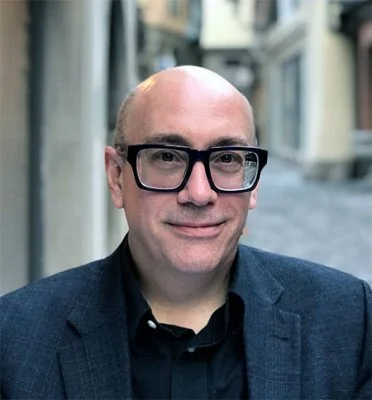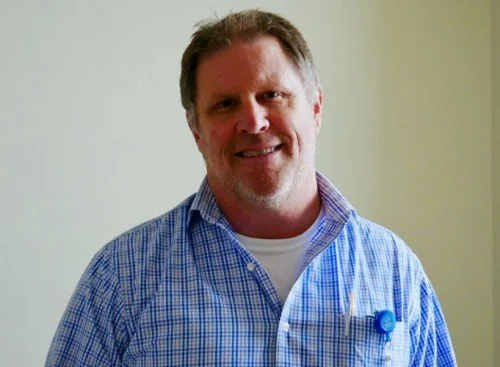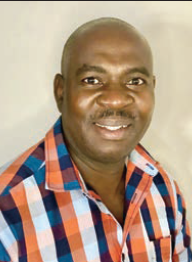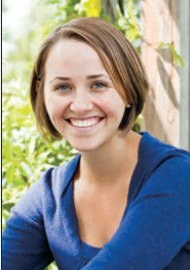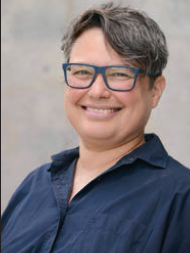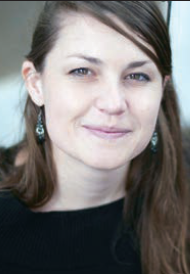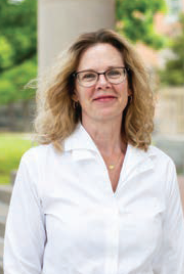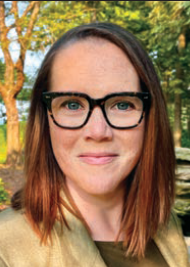
Research Group
Leaders
Michael Spezio is a computational cognitive neuroscientist specializing in valuation, emotion, and decision making in interaction. He joined Scripps College after completing postdoctoral fellowships in UC Davis' Department of Psychiatry & Behavioral Science and in the laboratory of Ralph Adolphs at Caltech. He has edited several interdisciplinary volumes on religion & science and science and virtue.
Andrew Davison is the Distinguished Visiting Fellow in Science and Theology at the Center of Theological Inquiry. At Cambridge University, his is the Starbridge Professor of Theology and Natural Sciences. Before he moved into theology, he was a scientist (a chemist, then a biochemist). He holds undergraduate degrees and doctorates in both natural science and theology.
George “Brick” Johnstone is the O. Wayne Rollins Director of Brain Injury Research at Shepherd Center in Atlanta, Georgia. He spent the past 35 years working to advance the employment, health, and community participation of individuals with neurological disorders, and primarily those with acquired brain injury.
Members
Elija Baloyi is passionate about collaborating with scholars in different parts of the world and is prepared for a “serious learning curve at CTI.” A professor in the Research Institute for Theology and Religion at The University of South Africa, he explores how colonialism marginalized traditional practices and customs of pre-colonial era funerals for African people. “Besides preaching, research is a way of reaching people and changing lives for the better,” he says. “It’s easy to believe you are doing better when confined in your own space, but you learn a lot when you get out globally, so this is a wonderful opportunity.” Through his work in pastoral care, Baloyi is convinced that the challenges facing people in their daily lives can either build or destroy them. “For me, theology must speak to the people within their own realities. Being relevant demands that one understands how the human mind works and how much affected people are by their own socio-economic and political situations.”
Michael Bräutigam of the faculty of the Melbourne School of Theology in Australia, has been a pastor/teacher in Germany (Free Evangelical Church) and an elder in a local Edinburgh congregation of the Free Church of Scotland. He strives to make theology accessible. At CTI, his project on “Ironic Thriving: An Integrative Conversation” focuses on understanding human well-being following the impact of the COVID-19 pandemic. To this end, he aims to carve out the underlying mechanisms of thriving that are activated in the context of adversity, combining recent research into cognitive dissonance theory, positive psychology, and post-traumatic flourishing with biblical-systematic theological approaches toward an integrative theory.
Jessica Coblentz is Associate Professor, St. Mary’s College, Notre Dame, Indiana with expertise in Religious Studies and Theology, Gender and Women’s Studies. At CTI, her project is titled “The Crane and the Pelican: How Christian Theology Shapes Suffering and Can Promote Thriving among Women Who Live with Depression,” a book-length work of feminist theology that interrogates how contemporary Catholic theologies of gender, Christology, and Mariology reinscribe social norms that contribute to and shape women’s depression.
Marion Grau is Professor of Systematic Theology, Ecumenism, and Missiology at the MF Norwegian School of Theology, Religion, and Society. Grau hopes to learn more about psychological fields which could help her work on climate emotions, climate grief, and the socio-psychological processes involved in processes of climate change, energy transitions, and the political and theological issues at stake in these conversations. Having previously considered applying to CTI, she was delighted to find the current program. “This program matches my interests perfectly and it’s going to push me beyond what I would have done on my own.” Her project is timely. As program co-leader Andrew Davison has remarked concerning environmental matters: “The science is pretty clear, but actually changing the way we live is going to take more than science.”
Nadia Marais is Senior Lecturer in Systematic Theology at Stellenbosch University in South Africa. An ordained minister in the Dutch Reformed Church of South Africa, Marais earned her PhD in theology at Stellenbosch University under the supervision of Prof. Dirk Smit. Her forthcoming book is titled Homo Florens? Cultivating Grammars of Salvation. Her CTI research project on Thriving in Diverse Contexts will seek to integrate learning from cross-training in psychology with her own research interest in credible and life-giving theological rhetorics of human and ecological flourishing.
Barbara J. McClure is Associate Professor, Pastoral Theology and Practice, at Brite Divinity School, Texas Christian University. She has pursued the nature of human flourishing in a variety of contexts, including institutions of work, worship, and learning, as well as within the context of a counseling practice. At CTI, she proposes to examine human thriving in the midst of cultural, climate, and economic crises born largely of neocolonialism and neoliberal capitalist policies and practices. Her interests and commitments are deeply informed by her experience of being born and raised for almost twenty years in remote areas of East Africa as the daughter and granddaughter of Presbyterian (PCUSA) missionaries.
Sheryl Overmyer is Associate Professor and Chair of the Department of Catholic Studies at DePaul University in Chicago. As a moral theologian with interests across the disciplines, she aims to integrate psychological insights into virtue ethics toward a holistic theology of thriving. Her CTI project focuses on Aquinas and Attachment Wounds. “Thanks to this program, I have a structure for strategically curating my research time. It will lay the groundwork for the years to come.”She plans to learn more about different sub-fields in psychology—their metaphysical and ontological assumptions, anthropological commitments, methodologies, and epistemologies. “This program stands out by placing psychological sciences at the forefront. It offers theologians a strong foothold in psychology’s self-understanding as the foundation for mutual respect and exchange. The shared intellectual journey will also create a set of reference points within psychology, a common core we can refer to as we undertake our different integrative projects.”
Michelle Panchuk’s primary teaching interests are in philosophy of religion, feminist philosophy, and philosophy of trauma. Assistant Professor of Philosophy at Murray State University in Kentucky, her research “Flourishing in the Aftermath: A Theology of Thriving after Religious Trauma” acknowledges that while awareness of religious trauma is growing, knowledge of how to respond is sparse. How do survivors of religious trauma such as victims of sexual abuse by priests and pastors remain Christian? Panchuk investigates the character traits survivors can develop to help counteract the harms of religious trauma, and the concrete practices and activities that foster the virtues that promote post-traumatic thriving.
Andrew Shepherd, Senior Lecturer in Theology and Public Issues at New Zealand’s University of Otago/Mātai Whakapono Karaitiana, Te Whare Wānanga o Otāgo, has spent his working life alternating between academic teaching roles and leadership responsibilities in Christian and non-profit organizations. Before completing post-graduate studies in theology, he studied English literature and history. His CTI project, “Modes of Attending & Human Flourishing,” recognizes the significant contemporary challenges (global climate change, economic inequality, social polarization) that mitigate against long-term human thriving and suggests that our mode of attention is fundamental to our way of being in the world, determining our relationships with other humans and the non-human world. Hence a mode of attentiveness is integral to a “theology of thriving.”

